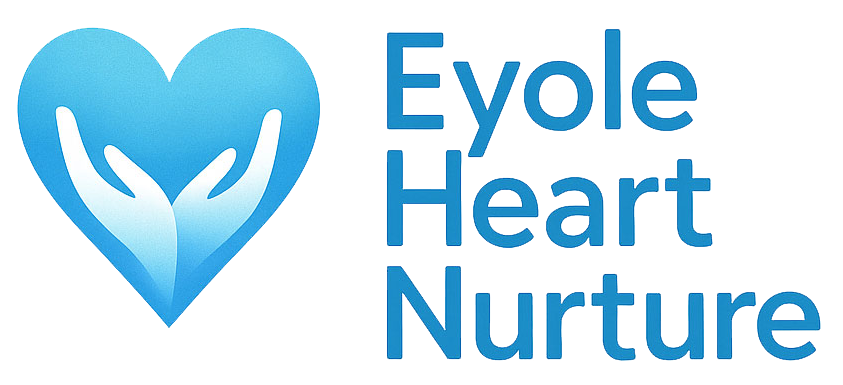“You’re not good enough.” “You’ll never succeed.” “Everyone else has it figured out.”
Does any of this sound familiar? Most of us are intimately acquainted with the relentless voice of the “inner critic”—that pervasive stream of negative self-talk that whispers doubts, highlights imperfections, and undermines our confidence. In a world that often measures worth by external achievements and appearances, it’s easy for self-doubt to take root, making us feel inadequate, anxious, and alone.
At Eyole Heart Nurture, we understand that nurturing your heart means addressing the battles fought within. Today, we’re tackling one of the most common and debilitating struggles: overcoming self-doubt and cultivating a healthier internal dialogue, drawing strength from both biblical truths and the practice of self-compassion.
The Voice of the Accuser: Where Self-Doubt Takes Root
Our inner critic often stems from a combination of past experiences, societal pressures, and sometimes, even well-intentioned but misguided messages we’ve internalized. It can manifest as:
- Perfectionism: The fear of making mistakes, leading to paralysis and an inability to start or finish tasks.
- Imposter Syndrome: A feeling that you’re a fraud, despite evidence of your competence and success.
- Comparisonitis: Constantly measuring yourself against others and always finding yourself lacking.
- Catastrophizing: Blowing small setbacks out of proportion and imagining the worst possible outcomes.
This constant barrage of negativity not only drains our energy but can also stifle our potential, hinder our relationships, and even impact our physical health, as we discussed with unforgiveness.
Identity in Christ: The Unshakeable Foundation
For those of us rooted in faith, the most powerful antidote to the inner critic lies in understanding our true identity in Christ. The Bible doesn’t just offer comforting words; it provides foundational truths that radically redefine our worth, independent of our performance or perceived flaws.
Consider these profound truths:
- You are fearfully and wonderfully made (Psalm 139:14): God’s handiwork is magnificent, and you are His masterpiece, intricately designed with unique talents and purpose. Your worth is inherent, not earned.
- You are loved with an everlasting love (Jeremiah 31:3): God’s love for you is unconditional, unwavering, and not dependent on your perfection. Even when you falter, His love remains.
- You are chosen and dearly loved (Colossians 3:12): You are not an accident. You have been specifically chosen by God for His purposes, adopted into His family, and endowed with immense value.
- You are a new creation in Christ (2 Corinthians 5:17): Your past mistakes, failures, and perceived inadequacies do not define you. In Christ, you are given a fresh start, a new identity, and the power to live differently.
- You are empowered by the Holy Spirit (Philippians 4:13): The same power that raised Christ from the dead lives within you, enabling you to overcome challenges and live a life beyond your natural abilities.
When the inner critic whispers, “You’re not enough,” faith proclaims, “I am enough because of Christ in me.” This is not a superficial affirmation but a deep-seated truth that can dismantle the lies of self-doubt.
Self-Compassion: Practicing God’s Grace Towards Yourself
While biblical truth provides the bedrock, practices of self-compassion help us apply that truth to our daily experience. Self-compassion is not self-pity or self-indulgence; it’s extending the same kindness, understanding, and acceptance to ourselves that we would readily offer to a dear friend. It’s embodying God’s grace in our internal world.
Here’s how to cultivate self-compassion:
- Mindfulness of Suffering: When the inner critic strikes, notice the pain and discomfort it causes without judgment. Acknowledge your feelings: “I’m feeling inadequate right now,” or “This self-doubt is really overwhelming.”
- Common Humanity: Remember that you are not alone in your struggles. Everyone experiences self-doubt and makes mistakes. This connects you to the broader human experience, reducing feelings of isolation. “This is a moment of suffering, and suffering is a part of life.”
- Self-Kindness vs. Self-Judgment: Instead of harsh self-criticism, respond to yourself with warmth and understanding. Ask yourself: “What do I need right now?” or “How would I comfort a friend feeling this way?” Offer yourself words of encouragement and comfort. You might place a hand over your heart as a physical gesture of care.
- Rewrite the Script: Actively challenge negative self-talk. When the inner critic says, “You messed up,” counter with, “I made a mistake, but I’m learning and growing.” Replace lies with biblical truths: “I may feel weak, but Christ’s strength is perfect in my weakness.”
- Practice Gratitude for Your Imperfections: Paradoxically, embracing our imperfections can free us. Recognize that your flaws are part of your unique journey and can even be avenues for God’s grace and strength to shine through.
- Set Healthy Boundaries for Your Mind: Just as you’d protect your physical space, learn to protect your mental space from destructive thoughts. If a thought is unhelpful or unkind, gently redirect your attention.
Nurturing a Heart of Confidence
Battling the inner critic is an ongoing process, but one that yields immense spiritual and emotional freedom. By grounding yourself in your divine identity in Christ and actively practicing self-compassion, you begin to dismantle the strongholds of self-doubt. You cultivate a healthier, more loving internal dialogue, allowing you to live with greater courage, peace, and purpose.
At Eyole Heart Nurture, we believe your heart is meant to flourish, unburdened by the weight of self-condemnation. Start today to embrace the truth of who you are in Christ, and extend the same grace to yourself that God freely offers. Your liberated heart will then be a vessel for His love to flow to others.





